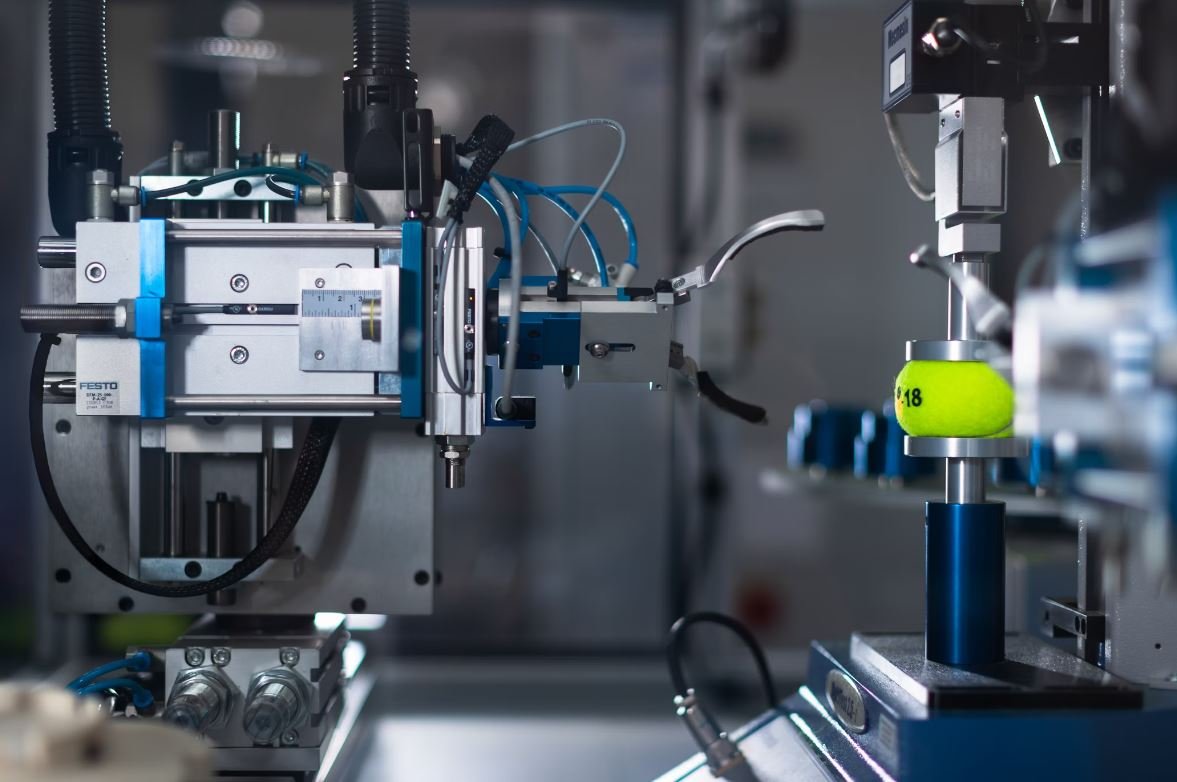AI Use Cases
Artificial Intelligence (AI) has become a transformative technology with numerous applications across various industries. From healthcare to marketing, AI is revolutionizing the way businesses operate and improving their efficiency. In this article, we will explore some of the key use cases of AI and how they are benefiting different sectors.
Key Takeaways
- AI is being used in various industries to improve processes and enhance decision-making capabilities.
- Some common use cases of AI include virtual assistants, fraud detection systems, and recommendation engines.
- AI is assisting in medical diagnostics, drug discovery, and personalized patient care.
- In the marketing and advertising industry, AI is improving targeting, customer segmentation, and campaign optimization.
**AI in Healthcare**
AI technology is transforming the healthcare sector, enabling faster and more accurate diagnoses, improving patient outcomes, and streamlining administrative tasks. Medical professionals are using AI-powered algorithms to analyze large amounts of patient data, helping them identify patterns, predict health risks, and develop personalized treatment plans. *AI is revolutionizing medical imaging by assisting radiologists in the early detection of diseases such as cancer.*
**AI in Marketing and Advertising**
AI is revolutionizing marketing and advertising by allowing businesses to deliver more personalized, targeted campaigns. By analyzing consumer data and behavior, AI-powered recommendation engines and virtual assistants are able to suggest products and services tailored to individual preferences. *With AI, marketers can automate the process of identifying the right target audience, optimizing ads, and measuring campaign performance, resulting in increased efficiency and ROI.*
| Use Case | Description |
|---|---|
| Medical Diagnosis | AI algorithms analyze patient data to assist in diagnosing diseases. |
| Drug Discovery | AI accelerates drug discovery by analyzing vast amounts of scientific data. |
| Patient Care | AI improves personalized patient care through remote monitoring and wearable devices. |
**AI in Finance**
The financial industry has greatly benefited from AI technologies. AI-powered chatbots provide customer service, answering queries, resolving issues, and even assisting in online transactions. Fraud detection systems use AI to analyze transactional data and identify anomalies, thereby minimizing financial losses. Additionally, AI algorithms are employed for stock market prediction and portfolio optimization. *AI enhances trading strategies, enabling quicker and more accurate decision-making in the financial markets.*
**AI in E-commerce**
E-commerce businesses are harnessing the power of AI to enhance customer experiences and boost sales. AI-powered recommendation engines use data analytics to personalize product suggestions, ultimately improving customer satisfaction and increasing conversion rates. AI chatbots provide 24/7 customer support, answering inquiries and guiding shoppers through the purchase process. *AI also aids inventory management by predicting demand and optimizing stock levels, reducing costs and avoiding stockouts.*
| Use Case | Description |
|---|---|
| Product Recommendations | AI analyzes customer data to provide personalized product recommendations. |
| Chatbots | AI-powered chatbots provide customer support and assistance. |
| Inventory Management | AI predicts demand and optimizes stock levels to avoid stockouts and reduce costs. |
**AI in Manufacturing**
In the manufacturing industry, AI technologies are used to enhance efficiency, quality control, and predictive maintenance. AI-powered robots and automation systems perform complex tasks with precision, reducing errors and improving productivity. Predictive maintenance systems use AI algorithms to analyze data from sensors to anticipate machinery failures, thus minimizing downtime and reducing maintenance costs. *AI-driven quality control systems detect defects in real-time, ensuring products meet high standards before reaching the market.*
**AI in Transportation**
AI is transforming the transportation industry by improving safety, efficiency, and sustainability. Autonomous vehicles, driven by AI algorithms, are being developed for safer and more efficient transportation. AI-powered traffic management systems analyze data from various sources to optimize traffic flow and reduce congestion. Moreover, AI algorithms optimize logistics and supply chain operations, reducing fuel consumption and carbon emissions. *AI is paving the way for smart cities where transportation is seamlessly integrated and environmentally friendly.*
| Use Case | Description |
|---|---|
| Autonomous Vehicles | AI algorithms enable self-driving vehicles for safer and more efficient transportation. |
| Traffic Optimization | AI-powered systems analyze real-time data to optimize traffic flow and reduce congestion. |
| Logistics and Supply Chain | AI algorithms optimize operations, minimizing fuel consumption and carbon emissions. |
With its vast potential and numerous applications, AI continues to revolutionize industries, changing the way businesses operate and improving customer experiences. As technology advances, we can expect AI to play an even greater role in shaping the future.

Common Misconceptions
1. AI will replace human workers
- AI systems are designed to assist and augment human capabilities, rather than replace them.
- Human workers are still necessary to provide context, make complex decisions, and manage relationships.
- AI can actually create new jobs and lead to workforce transformation.
2. AI is only for large companies
- AI can be beneficial for businesses of all sizes, not just large enterprises.
- There are scalable AI solutions available that can be tailored to meet the specific needs and budgets of small and medium-sized businesses.
- AI technology is becoming more accessible and affordable, allowing smaller companies to leverage its benefits.
3. AI is only used in futuristic applications
- AI is already being used in various industries and applications today.
- Examples include voice assistants, recommendation systems, fraud detection, and personalized marketing.
- AI is present in everyday products and services, making our lives more convenient and efficient.
4. AI is too complicated and hard to implement
- While AI can be complex, there are user-friendly AI tools and platforms available that simplify its implementation.
- Businesses can leverage pre-built AI models and APIs to integrate AI capabilities into their existing systems.
- AI implementation can be done in a phased manner, starting with small projects and gradually expanding as understanding and expertise grow.
5. AI is a threat to human privacy and security
- AI systems can be designed with privacy and security features in mind.
- Organizations can implement data protection measures and ensure secure AI deployment.
- AI can actually enhance cybersecurity by detecting anomalies and potential threats at a faster pace than humans.

AI in Medicine
Table showing the use cases of AI in the field of medicine, which includes applications in diagnosis, treatment, and research.
| Use Case | Description |
|---|---|
| Medical Imaging Diagnosis | AI algorithms can analyze medical images, aiding in the detection and diagnosis of diseases. |
| Drug Discovery | AI can accelerate the process of discovering new drugs and compounds by virtual screening and data analysis. |
| Personalized Treatment | AI systems can recommend personalized treatment plans based on an individual’s medical history, genetics, and lifestyle. |
AI in Finance
This table presents various applications of AI in the financial sector, encompassing fraud detection, algorithmic trading, and customer service.
| Use Case | Description |
|---|---|
| Fraud Detection | AI algorithms can identify patterns of fraudulent behavior and help prevent financial crimes. |
| Algorithmic Trading | AI systems can execute trades based on complex algorithms, enabling faster and more efficient transactions in the stock market. |
| Virtual Assistants | AI-powered virtual assistants can provide personalized customer support and financial advice. |
AI in Education
Explore the applications of AI in education, including personalized learning, intelligent tutoring systems, and plagiarism detection.
| Use Case | Description |
|---|---|
| Personalized Learning | AI can adapt educational content to the individual needs, pace, and abilities of students. |
| Intelligent Tutoring Systems | AI-powered tutoring systems provide personalized guidance and feedback to students, enhancing their learning experiences. |
| Plagiarism Detection | AI algorithms can compare student work with vast databases to identify instances of plagiarism. |
AI in Transportation
This table showcases AI’s impact on transportation, including autonomous vehicles, traffic management, and predictive maintenance.
| Use Case | Description |
|---|---|
| Autonomous Vehicles | AI enables self-driving cars and trucks, contributing to improved safety and efficiency on the roads. |
| Traffic Management | AI systems can optimize traffic flow and reduce congestion by analyzing real-time data from various sources. |
| Predictive Maintenance | AI algorithms can anticipate maintenance needs in transportation infrastructure, reducing downtime and costs. |
AI in Retail
Discover the applications of AI in the retail industry, including personalized recommendations, inventory management, and chatbots.
| Use Case | Description |
|---|---|
| Personalized Recommendations | AI algorithms analyze customer preferences and behaviors to provide tailored product recommendations. |
| Inventory Management | AI systems optimize inventory levels based on demand forecasting, reducing wastage and improving availability. |
| Chatbots | AI-driven chatbots assist customers, answer inquiries, and provide support, enhancing the overall shopping experience. |
AI in Agriculture
Highlighted in this table are various applications of AI in agriculture, including crop monitoring, pest control, and precision farming.
| Use Case | Description |
|---|---|
| Crop Monitoring | AI systems use drones and sensors to monitor crop health, detect diseases, and optimize irrigation. |
| Pest Control | AI algorithms identify pests, diseases, and harmful weeds, allowing farmers to target interventions. |
| Precision Farming | AI enables the precise use of water, fertilizers, and pesticides to maximize productivity while minimizing environmental impact. |
AI in Manufacturing
In this table, we present AI’s influence on manufacturing, including quality control, predictive maintenance, and supply chain optimization.
| Use Case | Description |
|---|---|
| Quality Control | AI systems can identify defects, anomalies, and deviations in manufacturing processes to ensure product quality. |
| Predictive Maintenance | AI algorithms predict maintenance needs, preventing machine failures and reducing downtime. |
| Supply Chain Optimization | AI optimizes supply chain operations by analyzing data to improve inventory management, demand forecasting, and logistics. |
AI in Customer Service
Here we outline AI’s impact on customer service, including virtual assistants, sentiment analysis, and personalized support.
| Use Case | Description |
|---|---|
| Virtual Assistants | AI-powered virtual assistants support customers, answer questions, and facilitate self-service options. |
| Sentiment Analysis | AI algorithms analyze customer feedback and sentiment to improve products and services. |
| Personalized Support | AI enables customized customer experiences by analyzing past interactions and preferences. |
AI in Cybersecurity
Explore the use cases of AI in the realm of cybersecurity, including threat detection, anomaly identification, and network security.
| Use Case | Description |
|---|---|
| Threat Detection | AI systems can proactively detect and prevent cyber threats, analyzing patterns, and monitoring network activities. |
| Anomaly Identification | AI algorithms identify unusual patterns and behaviors, flagging potential security breaches and anomalies. |
| Network Security | AI enhances the security of networks by continuously monitoring and analyzing traffic for potential risks or attacks. |
Conclusion
Artificial Intelligence (AI) has revolutionized numerous industries, unleashing a myriad of sophisticated applications. From medicine and finance to education and transportation, AI has transformed the way we work, live, and interact. The tables presented above illustrate some of the remarkable use cases of AI, showcasing its ability to diagnose diseases, predict market trends, personalize education, drive autonomous vehicles, enhance retail experiences, optimize agricultural practices, streamline manufacturing processes, improve customer service, and fortify cybersecurity. As AI continues to evolve, its potential to innovate and create positive change across various sectors is boundless.
Frequently Asked Questions
Q: What are some common use cases of AI?
A: AI is used in various industries, including healthcare, finance, manufacturing, retail, and transportation. Some common use cases include diagnosing diseases, fraud detection, process automation, demand forecasting, and autonomous vehicles.
Q: How is AI used in healthcare?
A: AI can be used in healthcare for a range of applications, such as disease diagnosis, personalized treatment plans, drug discovery, and robotic surgery. It can also analyze large amounts of patient data to identify patterns and improve patient outcomes.
Q: What is the role of AI in finance?
A: AI is used in finance for tasks such as fraud detection, risk assessment, investment decisions, algorithmic trading, and customer service automation. It can analyze vast amounts of financial data in real-time to make accurate predictions and automate manual processes.
Q: How does AI improve manufacturing processes?
A: AI can improve manufacturing processes by optimizing production efficiency, predicting maintenance needs, minimizing defects, and enhancing quality control. It can also enable predictive maintenance, where machines can be repaired or replaced before a breakdown occurs.
Q: What are some AI applications in the retail industry?
A: AI can be used in the retail industry for personalized marketing, inventory management, demand forecasting, chatbots for customer support, and recommendation systems. It can analyze customer behavior and preferences to offer tailored shopping experiences.
Q: How is AI applied in transportation?
A: AI is applied in transportation for tasks like traffic management, route optimization, autonomous vehicles, predictive maintenance of vehicles, and intelligent ticketing systems. It can reduce congestion, improve safety, and enhance overall transportation efficiency.
Q: How does AI contribute to environmental sustainability?
A: AI contributes to environmental sustainability by optimizing energy consumption, predicting and preventing environmental risks, improving waste management systems, and enabling smart grid systems. It can help reduce carbon emissions and promote sustainable practices.
Q: What role does AI play in customer service?
A: AI plays a significant role in customer service, enabling chatbots for instant responses and assistance, voice recognition for personalized interactions, sentiment analysis to gauge customer satisfaction, and recommendation systems to offer relevant product suggestions.
Q: How can AI assist in cybersecurity?
A: AI can assist in cybersecurity by identifying and mitigating potential threats, detecting anomalies in network traffic, analyzing patterns to predict and prevent attacks, and enhancing network security infrastructure. It can help organizations protect their data and systems from cyber threats.
Q: What are the ethical considerations when using AI?
A: Ethical considerations when using AI include transparency, accountability, fairness, privacy, and bias. It is crucial to ensure that AI systems are transparent in their operations, accountable for their decisions, fair in their outcomes, respect privacy rights, and avoid biases or discrimination.




